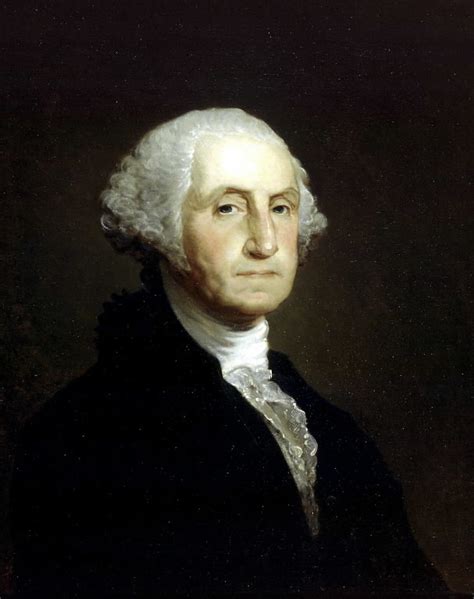In APUSH (Advanced Placement United States History), George Washington is recognized as an influential figure who played a pivotal role in the American Revolution and the early years of the United States. This article aims to provide a comprehensive overview of George Washington’s significance in APUSH with in-depth analysis, historical context, and key concepts.

Early Life and Military Career
George Washington was born on February 22, 1732, in Westmoreland County, Virginia. His father, Augustine, was a wealthy planter and slave owner, while his mother, Mary, was the daughter of a prominent local family. Washington had a limited formal education but gained practical experience in surveying and farming.
At the age of 22, Washington joined the Virginia militia and fought in the French and Indian War (1754-1763). As a lieutenant colonel, he led troops in several battles and gained valuable military experience. His leadership and bravery during the war earned him recognition and respect.
Role in the American Revolution
As tensions between Great Britain and its American colonies escalated, Washington emerged as a leading voice for colonial rights. In 1775, he was appointed commander-in-chief of the Continental Army, tasked with leading the fight for independence.
Throughout the war, Washington faced numerous challenges, including a shortage of supplies, lack of trained soldiers, and political disagreements within the Continental Congress. Despite these difficulties, he demonstrated strategic thinking, perseverance, and unwavering determination.
In 1781, Washington’s forces achieved a decisive victory at the Battle of Yorktown, which effectively ended the war. The Treaty of Paris (1783) recognized American independence, and Washington became a national hero.
Presidency and Legacy
After the war, Washington was elected as the first president of the United States in 1789. During his presidency, he established many important institutions and policies that shaped the nation’s early development.
Washington’s presidency was marked by:
- Establishment of the Federal Government: He created executive departments, appointed cabinet members, and set precedents for the operation of the federal government.
- Fiscal Policy and National Debt: He established the Treasury Department under Alexander Hamilton, which established a national bank and assumed state debts.
- Foreign Policy: He issued the Proclamation of Neutrality, declaring the U.S. neutral in the ongoing French Revolution.
- Whiskey Rebellion: He suppressed the Whiskey Rebellion, a tax protest in western Pennsylvania, demonstrating the authority of the federal government.
Washington retired from the presidency in 1797 and returned to his estate, Mount Vernon. He died on December 14, 1799, at the age of 67.
Historical Impact and Significance
George Washington’s impact on American history is immeasurable. He played a pivotal role in the American Revolution, leading the Continental Army to victory and securing the independence of the United States. As the first president, he laid the foundation for the federal government and established policies that continue to shape the nation today.
Washington’s character and leadership qualities have also made him a historical icon. He is remembered for his integrity, courage, and selfless devotion to his country. His legacy continues to inspire generations of Americans and serve as a model of patriotism and public service.
Key Concepts in APUSH
In APUSH, the study of George Washington’s presidency focuses on several key concepts:
- Nation Building: Washington’s efforts to create a strong central government and establish a sense of national identity.
- Political Parties: The emergence of political parties during Washington’s presidency, including the Federalists and Democratic-Republicans.
- Foreign Policy: Washington’s policy of neutrality and its impact on the nation’s early foreign relations.
- Whiskey Rebellion: The whiskey tax protest in western Pennsylvania and its implications for the authority of the federal government.
Additional Resources
- George Washington’s Mount Vernon Estate: https://www.mountvernon.org/
- The Library of Congress’s George Washington Collection: https://www.loc.gov/collections/george-washington/
- The George Washington Papers at the University of Virginia: https://www.gwpapers.virginia.edu/
Conclusion
George Washington remains a central figure in American history, both as a military leader and as the first president of the United States. His impact on the American Revolution and the development of the nation cannot be overstated. The study of George Washington in APUSH provides students with an in-depth understanding of his leadership, character, and the challenges and opportunities that shaped his presidency. Washington’s legacy continues to influence American politics and society today, serving as a reminder of the values and principles upon which the nation was founded.
